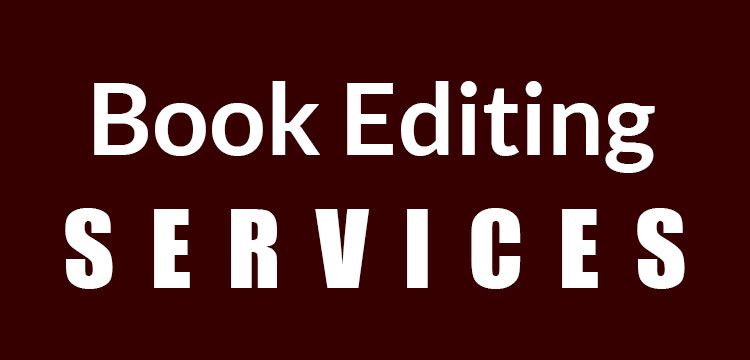-
In the vast and diverse world of literature, where every word holds weight and every sentence shapes a narrative, the role of book editing services is paramount.
Whether you are a seasoned author or a budding writer,
The journey from manuscript to masterpiece often involves the skilled hands of an editor.
In this blog post, we delve into the art and importance of book editing services, exploring the different types of editing and the transformative impact they can have on a book.
Body:
1. The Editing Spectrum
a. Developmental Editing:
At the foundation of the editing process lies developmental editing.
This stage focuses on the overall structure and coherence of the manuscript.
A developmental editor assesses the plot, character development, pacing, and overall narrative flow.
They provide constructive feedback to enhance the manuscript’s strengths and address its weaknesses, ensuring that the story captivates and engages the reader.
b. Copy Editing:
Moving into the details, copy editing hones in on language and style.
Grammar, punctuation, syntax, and consistency are meticulously examined.
This type of editing aims to polish the prose, refining it to meet industry standards while preserving the author’s unique voice.
A skilled copy editor ensures that the language is clear, concise, and free from distracting errors.
c. Proofreading:
The final step in the editing spectrum is proofreading.
Though often underestimated, proofreading is a crucial component.
It involves a meticulous review of the manuscript for typos, spelling errors, and formatting issues.
A proofreader adds the finishing touches, ensuring the manuscript is error-free and ready for publication.
2. The Collaborative Process
Contrary to the misconception that editing is a solitary endeavor, it is a collaborative process between the author and the editor.
A skilled editor serves as a guide, offering insights and suggestions while respecting the author’s vision.
This collaboration results in a harmonious balance between the author’s creative expression and the editor’s expertise, ultimately elevating the quality of the book.
3. Elevating the Manuscript
a. Clarity and Coherence:
One of the primary goals of book editing services is to enhance the clarity and coherence of the manuscript.
A well-edited book ensures that the narrative unfolds seamlessly, preventing confusion and keeping readers immersed in the story.
b. Engaging the Reader:
Editors play a crucial role in capturing and maintaining the reader’s attention.
Through thoughtful feedback and strategic edits, they help authors refine their storytelling techniques, making the narrative more compelling and emotionally resonant.
c. Polishing the Prose:
Language is a powerful tool in the hands of a writer, and editors are the craftsmen who refine that tool.
Polished prose, free from grammatical errors and awkward phrasing, enhances the reading experience and solidifies the author’s credibility.
4. Beyond Error Correction
While editing undeniably involves correcting errors, its scope extends far beyond mere proofreading.
A skilled editor acts as a mentor, providing valuable insights into character development, plot dynamics, and thematic consistency.
Their role is not just to fix mistakes but to elevate the manuscript to its fullest potential.
5. Navigating the Publishing Landscape
In the ever-evolving landscape of publishing, where competition is fierce, a professionally edited book stands out.
Literary agents, publishers, and readers alike are drawn to manuscripts that have undergone rigorous editing.
It signals a commitment to quality and increases the likelihood of the book finding its way to a broader audience.
Conclusion:
In the intricate dance of storytelling, book editing services emerge as the choreographers, refining each step and ensuring the performance is nothing short of spectacular.
From developmental edits that shape the narrative arc to proofreading that catches the tiniest missteps, every stage of editing contributes to the creation of a literary masterpiece.
As authors and editors collaborate in this creative journey, the result is not just a polished manuscript;
it is a work of art that resonates with readers and stands the test of time.
So, whether you are an aspiring author or a seasoned wordsmith, consider the transformative power of book editing services in bringing your literary vision to life.
In the vast and diverse world of literature, where every word holds weight and every sentence shapes a narrative, the role of book editing services is paramount. Whether you are a seasoned author or a budding writer, the journey from manuscript to masterpiece often involves the skilled hands of an editor. In this blog post, we delve into the art and importance of book editing services, exploring the different types of editing and the transformative impact they can have on a book.Body:
1. The Editing Spectrum
a. Developmental Editing: At the foundation of the editing process lies developmental editing. This stage focuses on the overall structure and coherence of the manuscript. A developmental editor assesses the plot, character development, pacing, and overall narrative flow. They provide constructive feedback to enhance the manuscript’s strengths and address its weaknesses, ensuring that the story captivates and engages the reader.
b. Copy Editing: Moving into the details, copy editing hones in on language and style. Grammar, punctuation, syntax, and consistency are meticulously examined. This type of editing aims to polish the prose, refining it to meet industry standards while preserving the author’s unique voice. A skilled copy editor ensures that the language is clear, concise, and free from distracting errors.
c. Proofreading: The final step in the editing spectrum is proofreading. Though often underestimated, proofreading is a crucial component. It involves a meticulous review of the manuscript for typos, spelling errors, and formatting issues. A proofreader adds the finishing touches, ensuring the manuscript is error-free and ready for publication.
2. The Collaborative Process
Contrary to the misconception that editing is a solitary endeavor, it is a collaborative process between the author and the editor. A skilled editor serves as a guide, offering insights and suggestions while respecting the author’s vision. This collaboration results in a harmonious balance between the author’s creative expression and the editor’s expertise, ultimately elevating the quality of the book.
3. Elevating the Manuscript
a. Clarity and Coherence: One of the primary goals of book editing services is to enhance the clarity and coherence of the manuscript. A well-edited book ensures that the narrative unfolds seamlessly, preventing confusion and keeping readers immersed in the story.
b. Engaging the Reader: Editors play a crucial role in capturing and maintaining the reader’s attention. Through thoughtful feedback and strategic edits, they help authors refine their storytelling techniques, making the narrative more compelling and emotionally resonant.
c. Polishing the Prose: Language is a powerful tool in the hands of a writer, and editors are the craftsmen who refine that tool. Polished prose, free from grammatical errors and awkward phrasing, enhances the reading experience and solidifies the author’s credibility.
4. Beyond Error Correction
While editing undeniably involves correcting errors, its scope extends far beyond mere proofreading. A skilled editor acts as a mentor, providing valuable insights into character development, plot dynamics, and thematic consistency. Their role is not just to fix mistakes but to elevate the manuscript to its fullest potential.
5. Navigating the Publishing Landscape
In the ever-evolving landscape of publishing, where competition is fierce, a professionally edited book stands out. Literary agents, publishers, and readers alike are drawn to manuscripts that have undergone rigorous editing. It signals a commitment to quality and increases the likelihood of the book finding its way to a broader audience.
Conclusion:
In the intricate dance of storytelling, book editing services emerge as the choreographers, refining each step and ensuring the performance is nothing short of spectacular. From developmental edits that shape the narrative arc to proofreading that catches the tiniest missteps, every stage of editing contributes to the creation of a literary masterpiece. As authors and editors collaborate in this creative journey, the result is not just a polished manuscript; it is a work of art that resonates with readers and stands the test of time. So, whether you are an aspiring author or a seasoned wordsmith, consider the transformative power of book editing services in bringing your literary vision to life.
The Art and Importance of Book Editing Services

-
In the vast and diverse world of literature, where every word holds weight and every sentence shapes a narrative, the role of book editing services is paramount. Whether you are a seasoned author or a budding writer, the journey from manuscript to masterpiece often involves the skilled hands of an editor. In this blog post, we delve into the art and importance of book editing services, exploring the different types of editing and the transformative impact they can have on a book.



